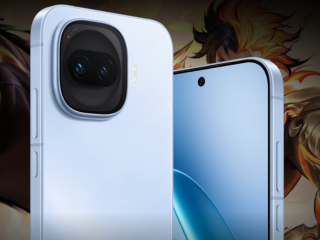- Home
- Transportation
- Transportation News
- Amazon Installing AI Cameras in Delivery Vans Sparks Surveillance Concerns
Amazon Installing AI Cameras in Delivery Vans Sparks Surveillance Concerns
Amazon employees say the AI cameras are an “invasion of privacy” and “just another way to control us”.

Amazon says cameras would improve safety of both drivers and the communities
Amazon.com Inc's announcement this week that it would be rolling out AI-powered cameras in its branded delivery vans for safety has drawn criticism from privacy advocates and workers concerned with being subjected to surveillance on the job.
The world's largest e-commerce firm said the cameras, which are developed by transportation technology company Netradyne, would improve safety of both drivers and the communities in which they deliver.
But employees like Henry Search, a 22-year-old delivery driver in Washington state, said they saw cameras capturing their work day as an "invasion of privacy".
"We are out here working all day, trying our best already," Search told the Thomson Reuters Foundation in a phone interview. "The cameras are just another way to control us."
Privacy advocates warned that equipping Amazon's fleet of about 30,000 delivery vehicles with AI cameras could set a dangerous precedent for privacy.
"This appears to be the largest expansion of corporate surveillance in human history," said Evan Greer, deputy director of tech nonprofit Fight for the Future. "If this becomes the norm, we are talking about the extinction of human privacy."
Amazon has come under scrutiny in the past for accidents involving delivery drivers.
A company spokeswoman said in emailed comments that "this technology will provide drivers real-time alerts to help them stay safe when they are on the road."
In an instructional video about the cameras, Amazon's senior manager for last-mile safety Karolina Haraldsdottir said cameras will record 100% of the time, but are not set up to livestream from inside of vans.
They will detect unsafe driving, including when drivers appear distracted or drowsy, she explained, adding that the footage could be used by the company's safety team, or in investigations of theft or accidents.
But Greer said that safety issues could be addressed by slowing the pace of work. "The first thing they (Amazon) should do to improve safety would be not have such outrageous delivery quotas that force people into unsafe conditions," she said.
Another driver in Massachusetts, who asked not to use his name to protect his identity, said he would welcome a camera displayed outside his van to record evidence for any accident.
"But a camera on my face all the time, I don't see how that keeps me safe - it's too much," he said in a phone interview, noting that drivers already use an app called Mentor that tracks the location and movements of the vehicle.
Data use
Haraldsdottir said that "only a limited set of authorized people" would have access to driver footage from the cameras.
But some drivers worried Amazon might sell or share the footage with third parties, or use the cameras to monitor their performance on the job.
"The footage recorded could be shared with a future possible employer who can then decide to reject you before even knowing you," said one driver from Michigan who asked not to give his full name.
Although he enjoys doing deliveries for Amazon, he said he is currently looking for other work because he does not want to be subjected to surveillance.
Rights activists say Amazon already has an extensive surveillance system in its warehouses to track workers' movements and boost productivity, including navigation software, item scanners, wristbands, thermal cameras and recorded footage.
"There are no laws in place to meaningfully limit what Amazon can do with the footage they collect," said Greer, noting that other surveillance products, such as the Ring doorbell camera system, can share footage with police departments.
'Dystopia Prime'
Surveillance experts say that the privacy implications of Amazon's camera network for delivery vans extend far beyond drivers.
Andrew Ferguson, a professor of law at D.C.'s American University, said Amazon's private surveillance networks would further entrench the snooping powers of government.
"While the inclination to use AI technology to enhance driver safety is commendable, the failure to think about the privacy and surveillance issues and equities is troubling," he said.
While police may not have direct access to the footage, authorities will be able to access it in the course of an investigation, expanding the reach of police surveillance, Ferguson explained.
Last June, Amazon announced a one-year moratorium on police use of its facial recognition software, following criticism that the technology reinforced racial bias.
"Amazon is quite literally building mobile surveillance vans to film our neighborhoods, something that we would be rightly horrified about if our government did it," Ferguson said. "I don't think we want to join dystopia prime."
© Thomson Reuters 2021
Catch the latest from the Consumer Electronics Show on Gadgets 360, at our CES 2026 hub.
Related Stories
- Samsung Galaxy Unpacked 2025
- ChatGPT
- Redmi Note 14 Pro+
- iPhone 16
- Apple Vision Pro
- Oneplus 12
- OnePlus Nord CE 3 Lite 5G
- iPhone 13
- Xiaomi 14 Pro
- Oppo Find N3
- Tecno Spark Go (2023)
- Realme V30
- Best Phones Under 25000
- Samsung Galaxy S24 Series
- Cryptocurrency
- iQoo 12
- Samsung Galaxy S24 Ultra
- Giottus
- Samsung Galaxy Z Flip 5
- Apple 'Scary Fast'
- Housefull 5
- GoPro Hero 12 Black Review
- Invincible Season 2
- JioGlass
- HD Ready TV
- Laptop Under 50000
- Smartwatch Under 10000
- Latest Mobile Phones
- Compare Phones
- iQOO Z11 Turbo
- OPPO A6c
- Samsung Galaxy A07 5G
- Vivo Y500i
- OnePlus Turbo 6V
- OnePlus Turbo 6
- Itel Zeno 20 Max
- OPPO Reno 15 Pro Mini 5G
- Lenovo Yoga Slim 7x (2025)
- Lenovo Yoga Slim 7a
- Realme Pad 3
- OPPO Pad Air 5
- Garmin Quatix 8 Pro
- NoiseFit Pro 6R
- Haier H5E Series
- Acerpure Nitro Z Series 100-inch QLED TV
- Asus ROG Ally
- Nintendo Switch Lite
- Haier 1.6 Ton 5 Star Inverter Split AC (HSU19G-MZAID5BN-INV)
- Haier 1.6 Ton 5 Star Inverter Split AC (HSU19G-MZAIM5BN-INV)

















